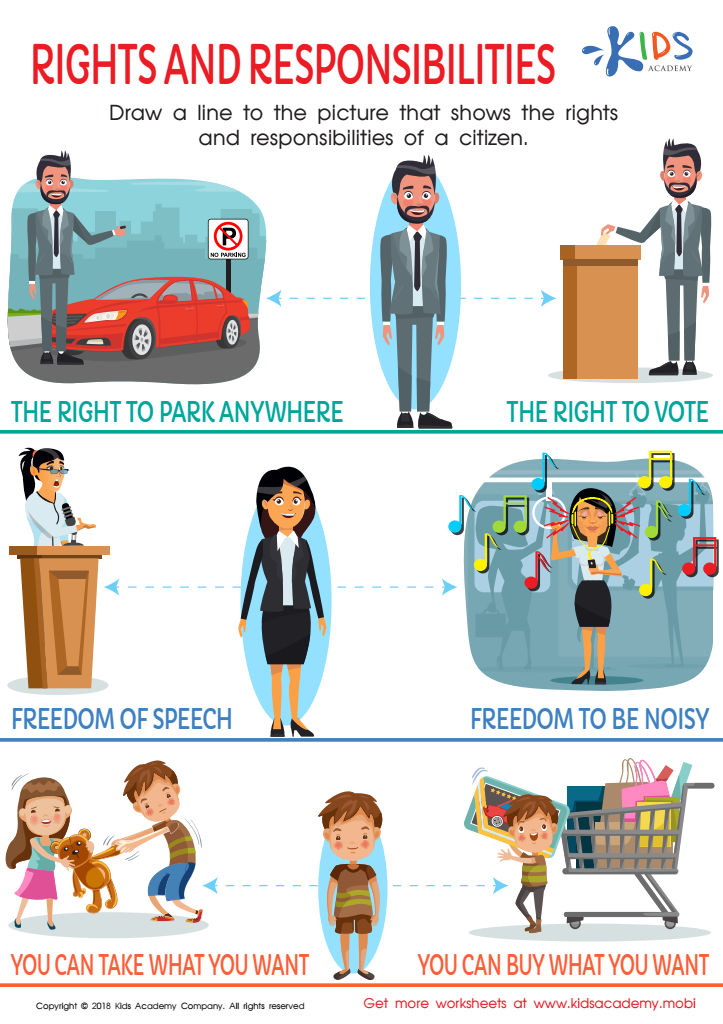Understanding rights Worksheets for Kids
1 filtered results
-
From - To


Rights and Responsibilities Worksheet
Question/Answer
Why is the Understanding rights skill important for Grade 1 students?
The Understanding rights skill is important for Grade 1 students as it lays the foundation for respecting others and themselves, recognizing fairness, and appreciating diversity from an early age. It helps them develop empathy, fosters a safe and inclusive classroom environment, and equips them with the knowledge to navigate social interactions responsibly.
How does the mastery of the Understanding rights skill affect a student's performance at an early age?
The mastery of the Understanding Rights skill at an early age significantly enhances a student's performance by fostering a sense of responsibility, empathy, and social awareness. This understanding promotes better interpersonal relationships, increases participation in group activities, and encourages a respectful and collaborative learning environment, ultimately leading to improved academic and social outcomes.
How to train the Understanding rights skill in Grade 1 students learning about Governance and Civics?
To train Grade 1 students in understanding rights, incorporate interactive activities such as storytelling involving rights-focused scenarios, role-plays where they act out situations involving rights and responsibilities, and simple group discussions on fairness.
 Assign to the classroom
Assign to the classroom












